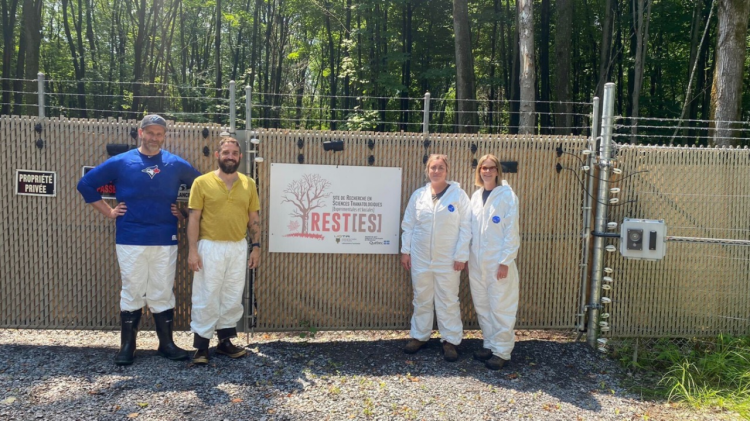
Canada Research Chair in Archaeological Science Dr. Paul Szpak and Early Career Researcher Dr. Aaron Shafer are joining a multi-disciplinary study looking to discover new biomarker signatures that can provide more accurate estimates of time of death for missing persons.
70,000 to 80,000 people go missing in Canada each year, and two Trent researchers are participating in a novel study, the results of which could bring peace of mind and closure to those with missing loved ones who don't return home safely.
Canada Research Chair in Archaeological Science Dr. Paul Szpak and Early Career Researcher Dr. Aaron Shafer are joining a multi-disciplinary study looking to discover new biomarker signatures that can provide more accurate estimates of time of death for missing persons.
"The tools used to accurately identify time of death in humans are still quite limited. We're able to identify time of death from hours to days and years, but there aren't many techniques or tools that are useful in accurately estimating time of death within that range," said Prof. Shafer. "The social justice implications of this are massive considering the number of people that go missing every year."
Led by Dr. Shari Forbes of the Université du Québec à Trois-Rivières (UQTR), the five-year project received $500,000 in funding from the competitive NSERC Discovery Horizons program to examine biological samples from post-mortem human donors at Dr. Forbes' Research in Thanatological Science [Experimental and Social] (REST[ES]) facility at UQTR.
Scientists will work backwards in their research, studying tissues, muscle, bone, DNA and more from individuals with known times of death in order to look for relationships and key indicators that can tell how much time has elapsed since a discovered body's time of death.
The two Trent professors bring expertise in genetics, forensics and chemistry. Professor Szpak is an expert in stable isotope analysis and will examine skin and bone samples.
"My work focuses on uncovering information about how people lived through the analysis of carbon and nitrogen isotopes in their bone and other tissues," said Prof. Szpak. "We usually apply these techniques on ancient remains and we worry about how natural decomposition might change the abundance of those isotopes over time. Here we are hoping to take advantage of understanding how and when those changes happen, and we hope that this project can provide useful tools that will ultimately help identify missing persons."
Prof. Szpak and Prof. Shafer's participation in this collaborative study is exemplary of Trent's reputation as an interdisciplinary academic institution.
"NSERC Discovery Horizons grants are quite prestigious, with fewer than one per cent of applications being successful. But applications that are successful usually detail projects that emphasize an interdisciplinary approach to research," said Prof. Shafer. "It's a privilege to be a part of this really novel research and working and learning alongside colleagues at other universities."
Ontario Tech University's Dr. Theresa Stotesbury, a former professor of Forensic Science at Trent, will also be working on the project, using scientific instruments at Trent's Water Quality Centre. Institutions including the Ministry of the Solicitor General, Canada, Ontario Forensic Pathology Service, Canadian Museum of History, and McGill University will also be involved.








